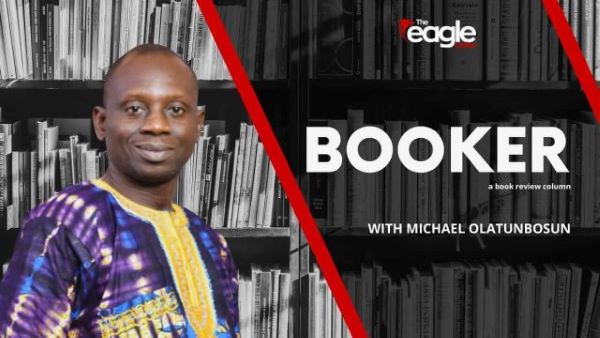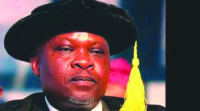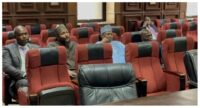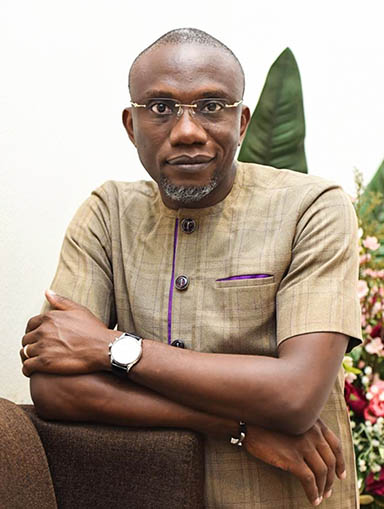Beautiful Fire is a collection of poems written by Dr. Lekan Akinwale, and published in 2013 by Gbola Best. Dr Akinwale practised as a medical doctor in Nigeria, United Kingdom, and Kingdom of Saudi Arabia. An award-winning essayist, Akinwale wrote columns in newspapers, and authored scientific publications.
The collection: “Beautiful Fire,” is the author’s response to the seeming apathy or silence of critical voices of advocacy and mobilisation in society.
In the preface to the work, Dr Lekan Akinwale expresses his concern for the state of the masses. He laments the death of the rule of law and the pervasive nature of corruption. He says that justice is in prison, and frowns at society’s discriminatory deployment of infrastructure.
The collection contains 30 poems distributed into four key sections. These are thematic segmentations of poems into health, politics, security and corruption.
The first section seems to be a lamentation on the state of public hospitals in Nigeria. The poems in the section decry the bureaucratic stranglehold and bribe-seeking mentality of staff of public healthcare centres. These attitudes, for the poet, keep the hospitals from working.
Also Read:
In the poem titled: “The Patient,” for example, the poet persona laments that although healthcare at the tertiary level should give the best services to patients and their families, they are painfully expensive and energy-sapping. They are poorly equipped and poorly maintained. He queries their obsolete work tools and infrastructure and shortage of qualified staff, arguing that they are “overburdened by a deluge of patients”, adding: “Teaching hospitals offer best services/…Free-service hospitals/Are poorly staffed, scanty drug supply/Equipment and service are archaic/Without regular update/Without work or social support/Health care is self-effort.”
The poet makes an allusion to how patients are pushed, out of frustration, to patronise fake healthcare providers, including self-help alternative medicine outlets. All these risks are taken by the patient because the cost of accessing quality healthcare is prohibitive.
In the poem, “Ambulance’s Status Symbol,” the poet speaks of the hypocrisy of the political class and their privileged cohorts in using the ambulance for carrying the dead, rather than the patient. According to the poet, the political elite do this more for the aesthetic pleasure it brings to them than the utility of the ambulance in the healthcare value chain.
The poet in this work heavily espouses a high level of Marxism, to the extent that a perceptive reader would observe large strands of the theory splashed across the pages of the collection as you move from poem to poem. In fact, in the preface of the work, the poet observes that those who run the country Nigeria have mastered the massive wealth of the nation “to create two sets of infrastructures.” According to the poet: “One is for the poor, such as archaic infrastructure, local vigilantes for security, camp-like houses, glorified dispensaries, bad roads, over-crowded classrooms etc. the infrastructure for the rich is the second. It is characterised by regular supply of energy, water supply, decent housing, sound education and medical care for their families at taxpayers’ expense.”
In the book therefore, the poet persona deploys vivid words and imagery such as “manipulating census”, born to rule, spoils like birthright and hegemonic misrule to describe the Nigerian experience. Throughout the work, the poet strategically employs words and expressions that potentially convey his message about how the political class and members of the elite class take the masses for granted.
Like an intricate landmine, the following words are tucked away at all nukes and crannies of the work: competitive looting, early earnings, frivolous spending, failure of leadership, and card-carrying offenders, among others.
In this poem titled “Election”, the poet examines the phenomenon of electoral promises made by the political elite before elections, and how the people’s hope is dashed after victory is won. He discusses the ghastly condition of the masses who are left at the mercy of arms-bearing retired political thugs.
In the collection Beautiful Fire, the poet also has pieces of advice for the reader, especially for road users on safety precautions on our roads. In the poem, “Be Careful”, the reader is admonished to make sure their vehicles are in good condition, and warns that over-speeding kills.
In the poem: “Sweet Mother,” the poet persona romanticises the love of the mother, stating: “Maternal love must endure/Otherwise tragedy’s its failure,” and therefore calls upon all concerned to provide Support for mothers in society.
In the poem titled: “Basketball Court,” the poet persona laments the alarming level at which the political class arrogates ultimate power to its members. He therefore employs the analogy of a basketball event to drive home his lamentation, blaming the sorry state of the masses on the “competitive looting” that has become the order of the day. For the poet:
“Archaic infrastructures they’re everywhere
With all the petrol dollars
And more resources to spare
The cabal lays the land bare
Leadership won’t even stare
…
Into a basket ball court
Leadership turns the state
Competitive looting’s the sport
It occupies top slot.”
The poet ends the poem by asking the question: “Who’ll rescue a nation/Where votes don’t count?”
Ultimately, the collection Beautiful Fire is a personal response of an introspective poet to the negligent governance imposed on the masses by an insatiate political class. It is a protest against the inept leadership that has decapitated the collective spirit of a people. And it is a testament to the poet’s agitation for better welfare for a people in need of rescue. The work is beautifully written for all lovers of the art.
. Olatunbosun is a broadcast journalist, fact-checker and book reviewer at Splash FM 105.5, Ibadan. He can be reached via 08023517565 (SMS & WhatsApp only) and email molatunbosun@splashfm1055.com.
Post Views: 5



















Leave a comment